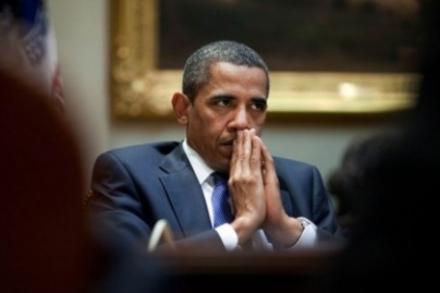
THE last round of nuclear negotiations with Iran ended in stalemate, and prospects appear dim for a breakthrough at next week’s meeting in Moscow.
Two central factors are driving Washington’s negotiation strategy at this point. The first is Congressional obstructionism and President Obama’s limited room to maneuver in an election year. The second is outsize expectations about what the current sanctions against Iran can achieve. Both must be abandoned if talks are to succeed.
Mr. Obama needs a continuing diplomatic process to calm the oil markets because of the coming election. Yet, precisely because of the election, he has limited ability to offer the Iranians relief from sanctions in return for nuclear concessions.
Congress is actively seeking to make a deal on the nuclear issue impossible by imposing unfeasible red lines, setting unachievable objectives — and depriving the executive branch of the freedom to bargain.
Just before last month’s talks in Baghdad, Congress passed a resolution that endorsed the Israeli prime minister Benjamin Netanyahu’s red line on the nuclear issue (Iran can’t have a uranium-enrichment capability), as opposed to the red line adopted by the Pentagon and the president (Iran can’t have a nuclear weapon). The problem is, Mr. Netanyahu’s red line isn’t feasible and doesn’t leave any room for negotiations.
For three years, Congress has prevented a sensible American policy on Iran. It was largely Congressional pressure that turned Mr. Obama’s Iran policy in 2009 into “a gamble on a single roll of the dice,” in the words of one senior State Department official. Diplomacy had to work right away or not at all.
Then, in 2010, it was again domestic politics and the activities of Congress that ultimately caused the Obama administration to reject a nuclear breakthrough brokered by Brazil and Turkey, which would have cut Iran’s uranium stockpile in half and deprived it of any pretext for enriching uranium to higher levels.
In Baghdad, Congress succeeded in depriving American negotiators of the political space necessary to reciprocate Iranian concessions. The Iranians focused on what they could get. Mr. Obama had to focus on what he wouldn’t give.
For the sake of peace, Congressional obstructionism must end. Sanctions against Iran should be used as leverage in negotiations to extract tangible, verifiable and valuable Iranian nuclear concessions.
The second problem with Mr. Obama’s strategy is an exaggerated belief in what sanctions can actually achieve. Many American officials seem to think that the embargo on Iranian oil can bring down the entire mullahcracy. Believing that such results are within reach, Washington appears mesmerized by its own sanctions and seems to doubt the utility of using them as a bargaining chip. Consequently, there is growing resistance to lifting them, regardless of what concessions Tehran might offer.
That would be a serious mistake.
We have seen this trap before. Whenever either side believes it has the upper hand, the desire for compromise diminishes, and the desire to checkmate the other side increases. But if we don’t negotiate when we are weak (because we are weak), and we don’t negotiate when we are strong (because we don’t have to), then when do we negotiate?
Moreover, the empirical track record of embargoes does not support the notion that this pressure will bring down the clerical autocracy in Tehran and lead to democracy.
Of the 35 states that have made the transition from authoritarianism to democracy since 1955, only one did so under the weight of an embargo: South Africa. Twenty states endured limited sanctions, and the remaining 14 found the path to democracy without any sanctions. Of the 10 states that endured embargoes, again only one democratized and gave up its nuclear program: South Africa. The others became more undemocratic, reactionary and oftentimes more dangerous.
This is the opposite direction of where we want Iran to go.
If Iran agrees in Moscow to accept the American demand that it halt uranium enrichment at the 20 percent level — too low a level to quickly create a nuclear weapon — this would effectively obstruct any Iranian shortcut to a bomb. Congress must then give Mr. Obama the political space to be able to take yes for an answer.
Congress must make up its mind. Does it want to prevent an Iranian nuclear bomb or does it want to maintain its sanctions? Going forward, it can’t have both.
First published in New York Times.
AUTHOR
Trita Parsi is president of the National Iranian American Council and the author of “A Single Roll of the Dice: Obama’s Diplomacy with Iran.”






